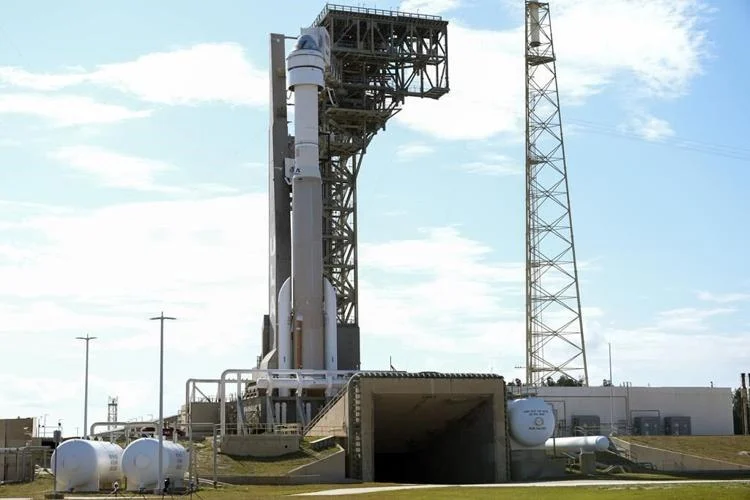
Source : The Canadian Press
Boeing postponed its inaugural astronaut launch due to a valve malfunction on the rocket Monday night, marking another setback in its years-long endeavor to initiate crew flights.
The scheduled liftoff for the two NASA test pilots aboard Boeing’s Starliner capsule to the International Space Station was interrupted just two hours before takeoff. The reason behind the delay was traced back to an oxygen pressure-relief valve on the upper stage of the Atlas rocket, operated by United Launch Alliance (ULA), exhibiting erratic behavior, causing audible vibrations.
According to ULA CEO Tory Bruno, the valve's activity hinted at potentially surpassing its operational limit of 200,000 cycles, necessitating replacement and consequently rescheduling the launch for the following week. However, if engineers swiftly confirm the valve's compliance with safety standards, another launch attempt could be made as early as Tuesday night.
This hiccup adds to the series of setbacks Boeing faced in its quest for a successful crewed flight, primarily due to technical issues with its capsule.
Bruno noted that similar valve malfunctions had been encountered in previous years with other Atlas rockets deployed for satellite launches, a situation usually resolved by resetting the valves. However, stringent safety protocols dictate different measures for crewed missions, preventing such quick fixes.
NASA's commercial crew program manager, Steve Stich, acknowledged the difficult decision-making process involved in postponing the launch, emphasizing a cautious approach prioritizing safety.
Following the halt in the countdown, Boeing swiftly dispatched its new astrovan to retrieve the astronauts, Butch Wilmore and Suni Williams, from the launch pad at Cape Canaveral Space Force Station.
This delay compounds the challenges Boeing has faced since its initial uncrewed test flight of the Starliner capsule in 2019, which failed to reach the space station, prompting a repeat flight. Subsequent issues, including parachute malfunctions and concerns over flammable materials, have further complicated Boeing's efforts.
NASA's reliance on private companies like Boeing and SpaceX to ferry astronauts to and from the space station, following the retirement of the shuttle program, underscores the significance of these missions. While SpaceX has been operational in this capacity since 2020, Boeing continues to grapple with technical hurdles in its pursuit of crewed spaceflight.















